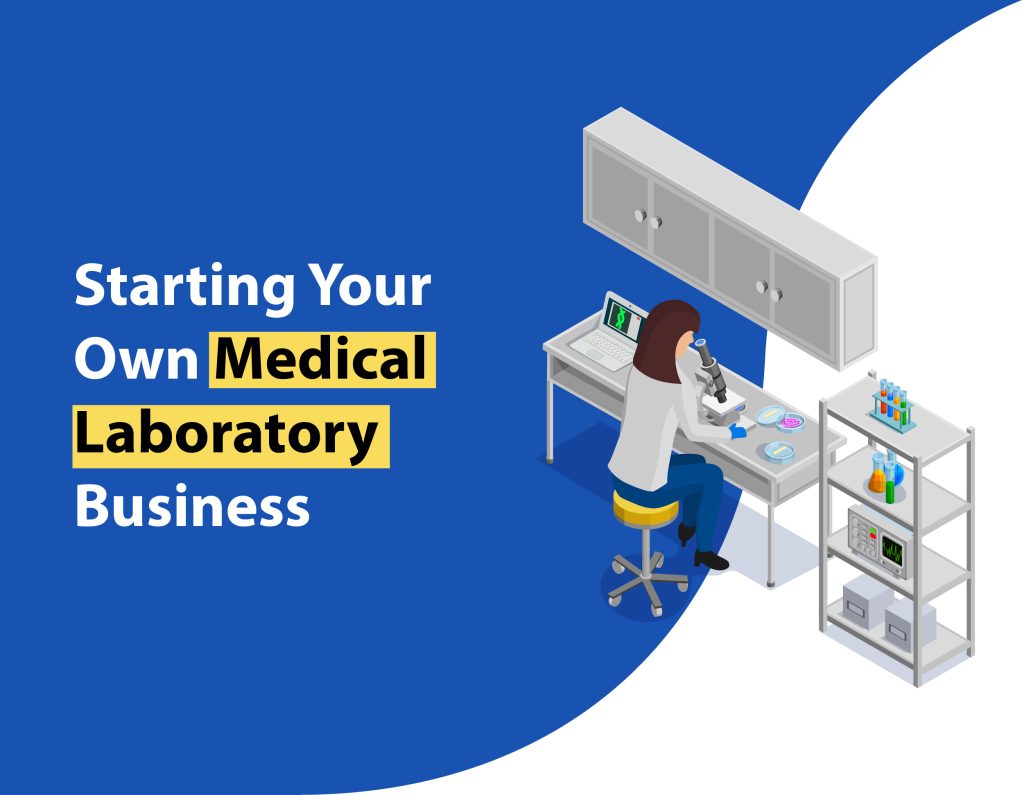Are you a healthcare professional with a passion for diagnostics and a desire to run your own business? Starting a medical laboratory business can be a rewarding venture that not only fulfills your entrepreneurial aspirations but also plays a crucial role in improving healthcare services in your community. In this blog post, we will provide you with a step-by-step guide on how to initiate your journey into the world of medical diagnostics.
Step-by-Step Guide to Starting Your Own Laboratory Business
1. Research and Create the Business Plan – Medical Laboratory Business
The first and most critical step in establishing a medical laboratory business is conducting comprehensive research and creating a well-thought-out business plan. Here are some key aspects to consider during this phase:
Market Research: Identify your target audience, competitors, and the demand for your services in your area.
Business Model: Decide on the type of medical laboratory you want to run, such as clinical, pathology, or specialty labs.
Regulatory Requirements: Familiarize yourself with local, state, and federal regulations for medical laboratories, including licensing and certification.
Your business plan should outline your mission, vision, and strategies for the growth and sustainability of your laboratory. It will also help you secure financing and partnerships.

2. Establish the Business Structure
Selecting the right legal structure for your medical laboratory is vital. Common options include sole proprietorship, partnership, limited liability company (LLC), or corporation. Each structure has its advantages and disadvantages, so consult with a legal professional or business advisor to choose the one that suits your goals and circumstances.
3. Fund the Lab
Starting a medical laboratory requires a substantial initial investment. You will need funding for various purposes, including:
- Equipment purchase
- Facility lease or construction
- Staff salaries
- Licensing and permits
- Marketing and advertising
You can obtain funds through personal savings, bank loans, grants, or partnerships. Your business plan will be essential for securing financing.
4. Secure the Lab Facility
Choosing the right location for your medical laboratory is crucial. Look for a facility that complies with all regulatory requirements, provides sufficient space for your equipment and staff, and is accessible to your target audience. Consider proximity to hospitals, clinics, or medical offices, as this can help with referral networks and accessibility.
5. Purchase Equipment
The heart of your medical laboratory is the equipment you use for diagnostic testing. Your choice of equipment should align with the services you plan to offer. Common equipment includes:
- Analyzers for blood, urine, and other bodily fluids
- Microscopes
- Refrigeration units for sample storage
- Computers and software for data management
- Investing in high-quality, reliable equipment is essential to ensure the accuracy and efficiency of your diagnostic services
How much does it cost to start a medical lab business?
The cost of starting a medical laboratory business can vary significantly based on factors such as the type of laboratory, the size of the facility, and the location. Generally, startup costs can range from $500,000 to several million dollars.
Here’s a breakdown of common expenses:
Equipment: This is often the most substantial cost, with expenses ranging from $200,000 to over $1 million, depending on the complexity and scale of your lab.
Facility: Renting or building a laboratory space can cost anywhere from $5,000 to $15,000 per month, depending on location and size.
Licensing and Permits: Costs for licenses, certifications, and permits can range from $10,000 to $50,000 or more, depending on regulatory requirements.
Staff: Salaries and benefits for laboratory technicians, scientists, and administrative personnel can constitute a significant ongoing expense.
Marketing: Budget for marketing and advertising expenses to promote your services and build a client base.
Miscellaneous: Set aside funds for unforeseen expenses, maintenance, and working capital.
It’s essential to create a detailed financial plan within your business plan to help you estimate the startup and ongoing costs for your specific laboratory.
Starting a medical laboratory business is a complex endeavor that requires careful planning, dedication, and a deep understanding of the healthcare industry. By following this step-by-step guide and conducting thorough research, you can turn your dream of owning a medical laboratory into a reality and make a positive impact on the healthcare of your community.


